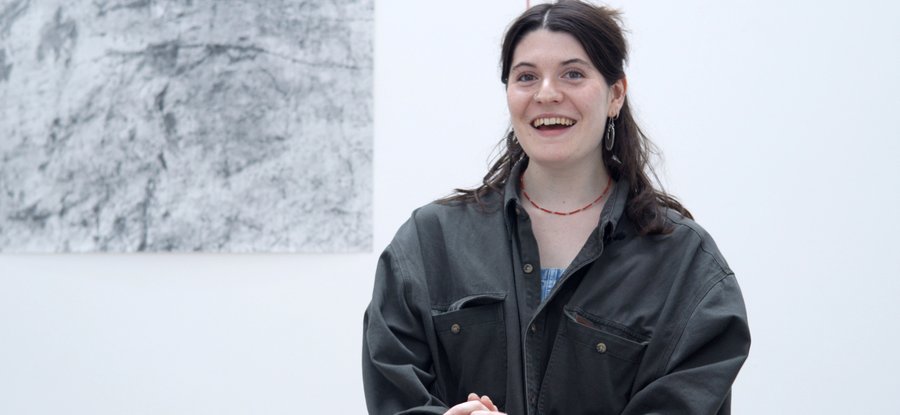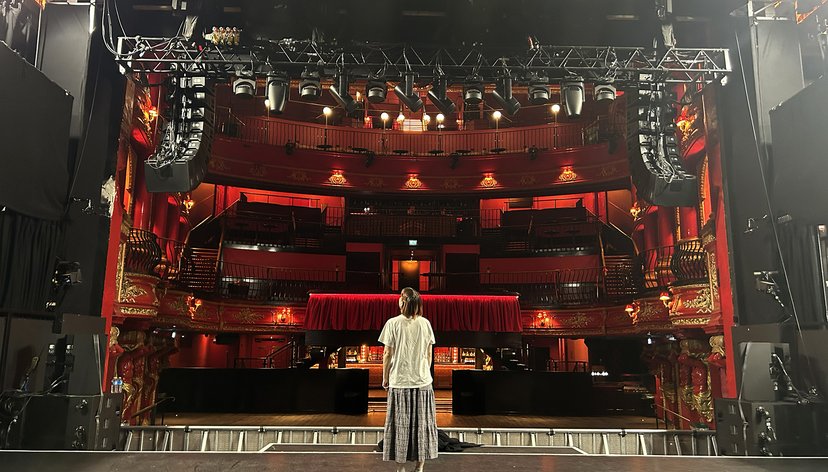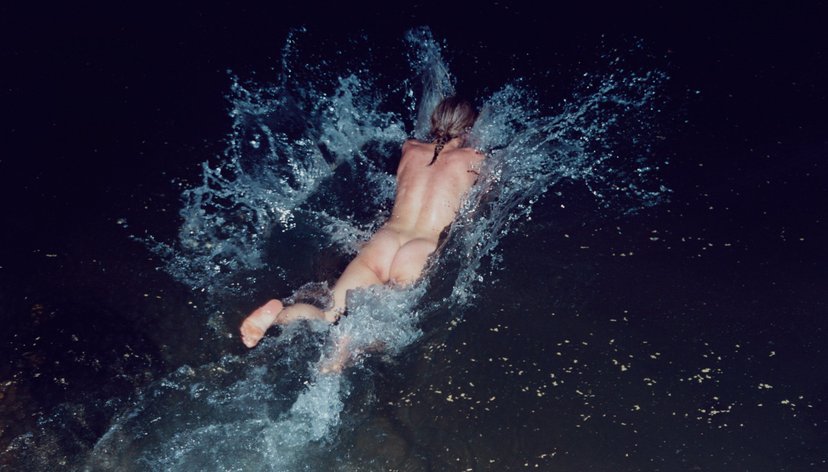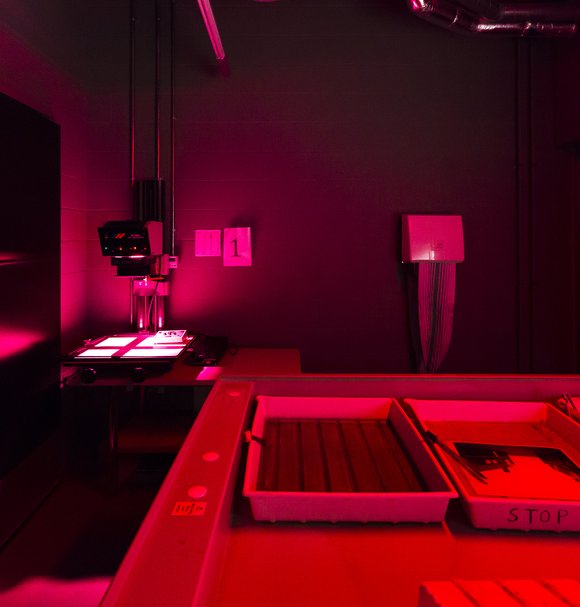
Key details
Date
- 13 December 2023
Read time
- 1 minute
Discover how, at the Royal College of Art (RCA), Rosie Plunkett expanded her photographic practice, linking the landscapes she documents with the action of drawing and traces of light in photography.
“Historically, photography has been seen as a visual medium. But I think more recently it is being pushed. What are the boundaries of photography? What is a photograph, what is a sculpture, what is a film?”
Photography MA alumni
After studying BA Photography at Manchester Metropolitan University Rosie Plunkett came to the RCA to study a Master’s in Photography. Her time at the College expanded her understanding of the medium and helped her to develop her practice into drawing, haptic making and installation.

“When I came down to London to study, I was really interested in thinking about the differences between chalk and coal; the hard landscape of the north and the soft landscape of the south. I was using chalk to mix with my film and shoot through it. But I wanted to think about how material could be interacted with instead of just the visual aesthetics of land.”
Photography MA alumni
Rosie is from the northeast of England. Coming to London to study, the shift in geology she saw around her, made her question ways that the material of the landscape might become present in her work.

“The idea of leaving traces in the form of chalk, and then also the trace of light and the imprint of light on photographic materials… I think the two processes mirror each other.”
Photography MA alumni
Drawing became a way for Rosie to think about chalk and her body’s relationship with the marks she made. She collaborated with fellow Photography MA student Yoichi Ishida who documented the performative works she made – thinking about the documentation and its relationship with photography.

“It is really important not to just see photography as a visual medium. I think it needs to be experienced and it needs to be engaged with.”
Photography MA alumni
For RCA2023, Rosie created a chalk drawing on the floor in front of one of her prints. She was unsure how viewers would respond – walking over the chalk rectangle, carefully stepping around it or not even noticing it. Rather than an end point, Rosie saw this presentation as research for future works.
“I like the idea of the work always being developed in print as a practical tool. The artwork as a very practical, haptic tool.”
Photography MA alumni




